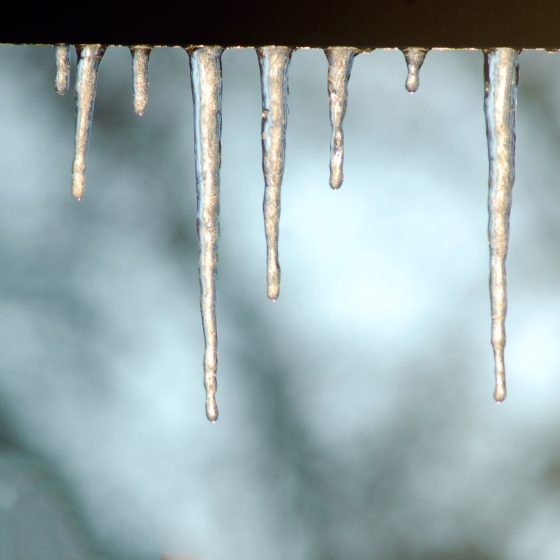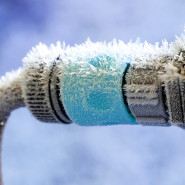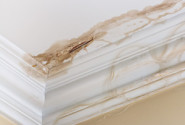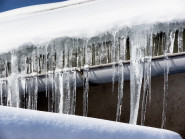
Top 6 Winter Plumbing Tips
When the temperature drops, water freezes and expands which can cause serious problems for many homeowners. Damage from burst pipes can cost thousands of dollars due to flooding, water damage and repairs. Depending on your insurance policy, some of that may not even be covered.
Let’s take a look at a few things you can do that may prevent costly problems from happening, especially when you least expect it like during holidays or while you’re on vacation.
- Turn Off Outside Taps
First, it is critical to remove, drain and store your garden hose for winter. If left connected, the remaining water in the hose will freeze, expand and possibly burst the valve and/or piping causing  flooding in your basement. Next, turn off the inside valves for each outside tap, or hosebib. Go back outside, turn on taps to remove any water and leave them open to prevent pressure buildup.
flooding in your basement. Next, turn off the inside valves for each outside tap, or hosebib. Go back outside, turn on taps to remove any water and leave them open to prevent pressure buildup.
If you have non-freeze hosebibs with a drain bleeder on your inside valve (small lever or screw cap on the side of the valve), go back inside after performing the first 3 steps and open the drain bleeder to completely drain any remaining water into a container. Close the drain bleeder for winter.
You may also want to wrap the hosebib with insulation and cover it with plastic to protect from freezing rain.
- Protect Exposed Pipes
Unfortunately, some piping is located in or next to unheated areas such as in the garage, porch, crawl space, attic or basement. Protect these vulnerable pipes by wrapping them in heat tape and/or foam rubber pipe insulation. If you’re turning the heat tape/coil on again from previous years, confirm it is working. Also, close your garage door after using to prevent frigid wind from entering.
During those days with Arctic-like temperatures, turn on both the hot and cold on faucets of susceptible pipes and let the water gently trickle to prevent pipes from freezing. Open cabinet doors to allow heat in around the pipes. If it’s a particularly cold area, place portable heaters nearby in the room to decrease the chance of your pipes freezing . And don’t forget to turn up the thermostat – a few extra dollars spent for a short time could save you thousands in damages should the pipes freeze and burst.
- Stop Water Damage
 Make sure everyone in your home knows where the main shut off valve is and how to turn it off in case of an emergency. The quicker you shut off the water, the less water damage you’ll have in your home. Be sure to test it at least twice annually to make sure it works and get it repaired right away if it won’t turn off or it leaks. It’s also a good idea to let others, like relatives and babysitters, know where it is located and who to call should you be away.
Make sure everyone in your home knows where the main shut off valve is and how to turn it off in case of an emergency. The quicker you shut off the water, the less water damage you’ll have in your home. Be sure to test it at least twice annually to make sure it works and get it repaired right away if it won’t turn off or it leaks. It’s also a good idea to let others, like relatives and babysitters, know where it is located and who to call should you be away.
4. Check Pumps and Septic
Check your sump and sewage pumps and pits for debris and clean out pits. Regularly remove any leaves or ice outside that could block the sump pump discharge pipe. Protect your discharge pipe from freezing or use a shorter discharge pipe in winter which makes it less likely to freeze as it is closer to the house. Regularly test to see how well your sump pump is working by pouring a couple of buckets of water into the pit. Better to know now if there is a problem before you rely on it to work.
If you are on a septic, now is the time to get it pumped out. Check the baffle regularly and clear any debris. If you have a special aeration-type system, get your septic serviced before the frigid weather to prevent back-ups at the worst time.
- Clear Eavestroughs and Downspouts
 Remove debris from your eavestroughs, gutters and downspouts. Water that can’t drain away can pool around your home’s foundation and eventually find a way inside. Water trapped in eavestroughs can build up under shingles, freeze, expand and lift up your shingles. Once it starts to thaw from the heat in your home or a sunny day, the melting water can find its way down through your ceiling and walls causing damage. Many people call their plumber believing it to be a plumbing problem.
Remove debris from your eavestroughs, gutters and downspouts. Water that can’t drain away can pool around your home’s foundation and eventually find a way inside. Water trapped in eavestroughs can build up under shingles, freeze, expand and lift up your shingles. Once it starts to thaw from the heat in your home or a sunny day, the melting water can find its way down through your ceiling and walls causing damage. Many people call their plumber believing it to be a plumbing problem.
6. Prevent Drain Problems
Get any slow or gurgling drains cleared out right away to prevent backups which have a tendency to happen during holiday season. If you use a garburator, don’t put down any fat, bones, pasta, rice or stringy vegetables which will eventually clog your drains.
Hopefully these tips will help prevent a disaster in your home this winter. Please share this information with others and check on ill or elderly family members or neighbours to see if they need any help performing the above.
5 Comments
Kate on
I didn’t know that you were suppose to clear slow drains ASAP. I thought that if you didn’t touch them, they would just fix themselves! My latest slow drain has been taking longer than usual, so that explains it!
Jessie Harrison on
We may be getting into the spring time, but I still need some tips on plumbing. My husband and I are trying to cut back on using some of our tips this summer. Although we want to do that without damaging them. I guess you could say we want to winterize them. I’ll have to see what I can do about that hose-bib!
John Carston on
It’s past winter where I live but the weather is still cold so your winter plumbing tips should still be applicable. I hadn’t thought to check my septic tank and pumps but I will have to take your advice. Things aren’t quite so cold that I would need to worry about frozen downspouts but they could probably be cleaned. Thanks for your advice.
Chad on
Great advice here. One thing I would add is trying to insulate areas where pipes maybe close to the exterior. A bag of insulation will go a long way in prevention here.
Plumb Perfect on
Thanks Chad. Great advice too!